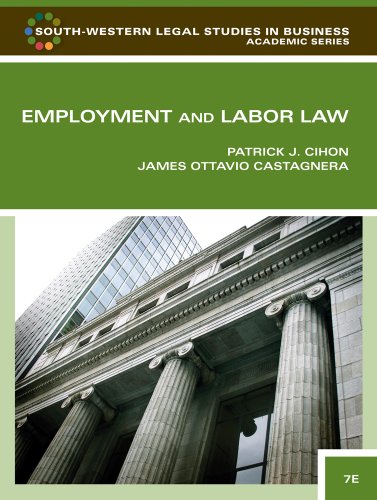Columbia Iron & Steel, Inc. operates a foundry, where pipes and other plumbing fixtures are cast. Much
Question:
Columbia Iron & Steel, Inc. operates a foundry, where pipes and other plumbing fixtures are cast.
Much of the raw material used in the manufacturing process comes from scrap metal or all kinds, including galvanized pipe containing zinc. While overexposure to zinc fumes can result in the so-called
“zinc shakes,” this is a temporary condition. When a worker appears in the plant’s clinic with zinc shakes, the doctor typically prescribes a week of sick leave, after which the employee is cleared to return to work. However, women workers are a different story. While not absolutely proven, it is widely accepted in the medical profession that exposure to zinc in the early stages of pregnancy can result in spontaneous abortion or severe birth defects.
Consequently, the company has a rule against women of childbearing age working in the “hot end” of the foundry, where exposure to zinc fumes is likely to occur. However, hot end work pays much better than quality assurance and packing work at the cold end of the plant. A number of young women working in the foundry contend that it should be left up to them whether or not to risk exposure to zinc by working in the hot end of the plant, if they are otherwise qualified to do the work.
What is your view of their position? If OSHA has regulations that apply to iron foundries, and if those regulations do not address the potential risk that concerns the company, how does this affect your answer? If the women are willing to wave any rights they may have against the company in the event that their reproductive systems are harmed in the hot end, what are the public policy considerations pro and con permitting such a waiver?
Step by Step Answer:

Employment And Labor Law
ISBN: 9781439037270
7th Edition
Authors: Patrick J. Cihon , James Ottavio Castagnera





